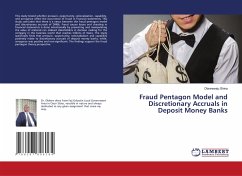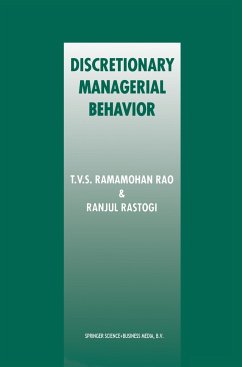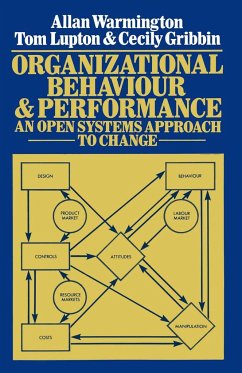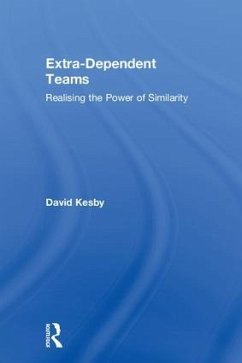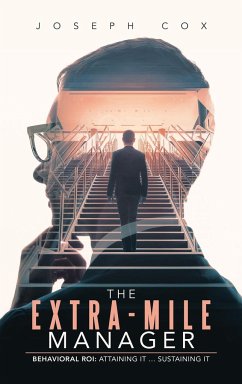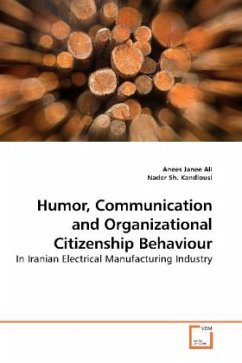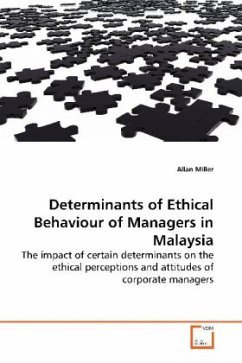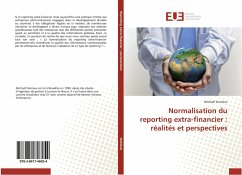
Trust and engagement in discretionary extra-role behaviour
Identifying the determinants of trust and of the willingness of employees to engage in discretionary extra-role behaviour
Versandkostenfrei!
Versandfertig in 6-10 Tagen
52,99 €
inkl. MwSt.

PAYBACK Punkte
26 °P sammeln!
The intellectual capital of an organisation is often its most valuable asset and one of management s enduring challenges is to understand how to capture, develop and then exploit the knowledge that exists in the organisation. The problem for management is that the prerequisite behaviour by employees, such as the sharing of constructive ideas and their knowledge and the giving of loyalty, are not generally seen as a necessary part of the role of employees. This book is based on research on employees in the public sector and shows that trust is a very significant determinant of the level of disc...
The intellectual capital of an organisation is often
its most valuable asset and one of management s
enduring challenges is to understand how to capture,
develop and then exploit the knowledge that exists
in the organisation. The problem for management is
that the prerequisite behaviour by employees, such
as the sharing of constructive ideas and their
knowledge and the giving of loyalty, are not
generally seen as a necessary part of the role of
employees. This book is based on research on
employees in the public sector and shows that trust
is a very significant determinant of the level of
discretionary effort. The research findings identify
the factors or criteria that employees use to
determine their level of trust and in turn their
willingness to engage in discretionary effort and
share their expertise with others for the benefit of
the organisation. This study by identifying and
empirically testing and then ranking the importance
of factors that affect trust and discretionary
effort, provides management with the knowledge that
will enable them to most productively improve
employee perceptions of trust in the organisation.
its most valuable asset and one of management s
enduring challenges is to understand how to capture,
develop and then exploit the knowledge that exists
in the organisation. The problem for management is
that the prerequisite behaviour by employees, such
as the sharing of constructive ideas and their
knowledge and the giving of loyalty, are not
generally seen as a necessary part of the role of
employees. This book is based on research on
employees in the public sector and shows that trust
is a very significant determinant of the level of
discretionary effort. The research findings identify
the factors or criteria that employees use to
determine their level of trust and in turn their
willingness to engage in discretionary effort and
share their expertise with others for the benefit of
the organisation. This study by identifying and
empirically testing and then ranking the importance
of factors that affect trust and discretionary
effort, provides management with the knowledge that
will enable them to most productively improve
employee perceptions of trust in the organisation.



